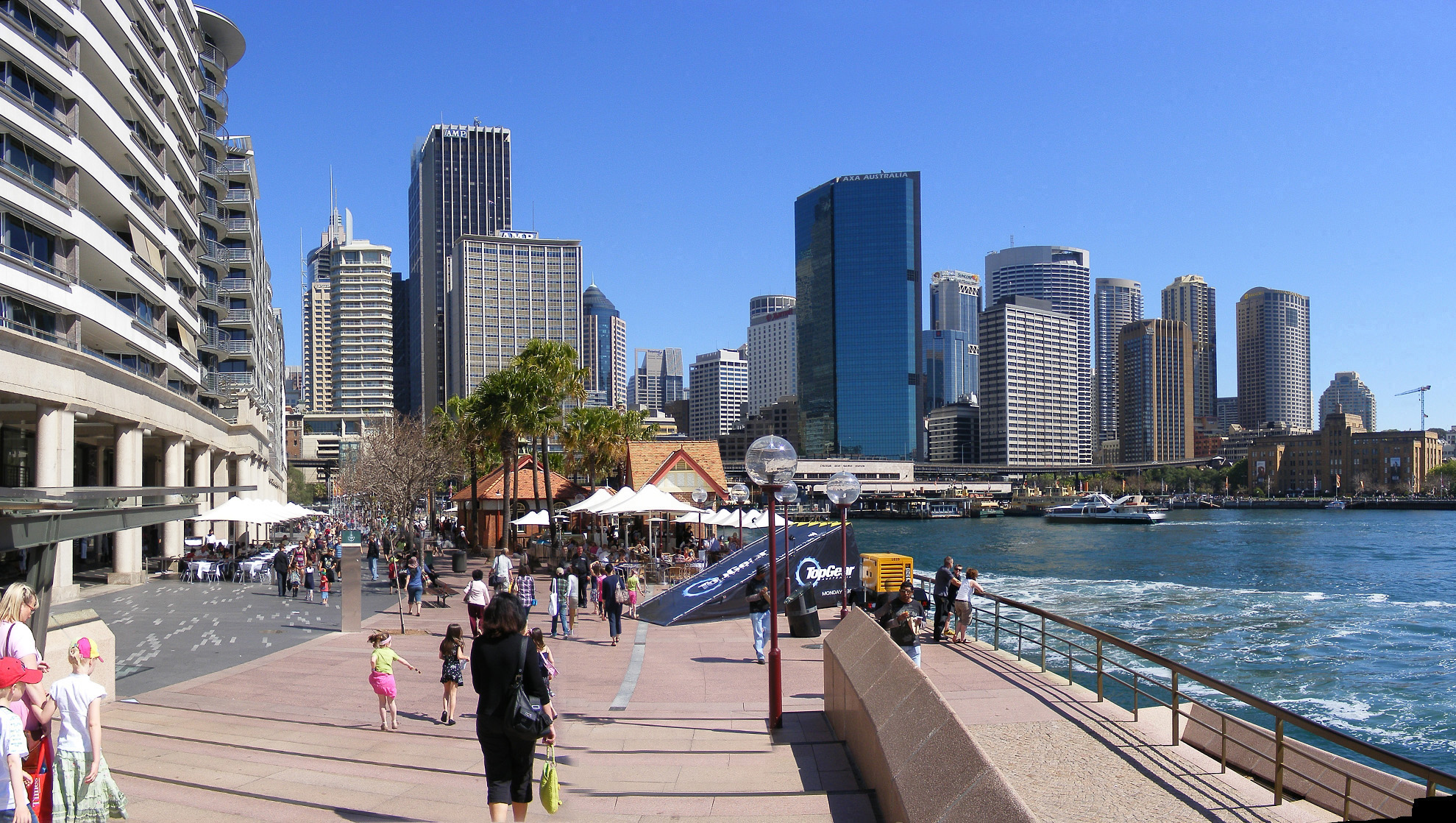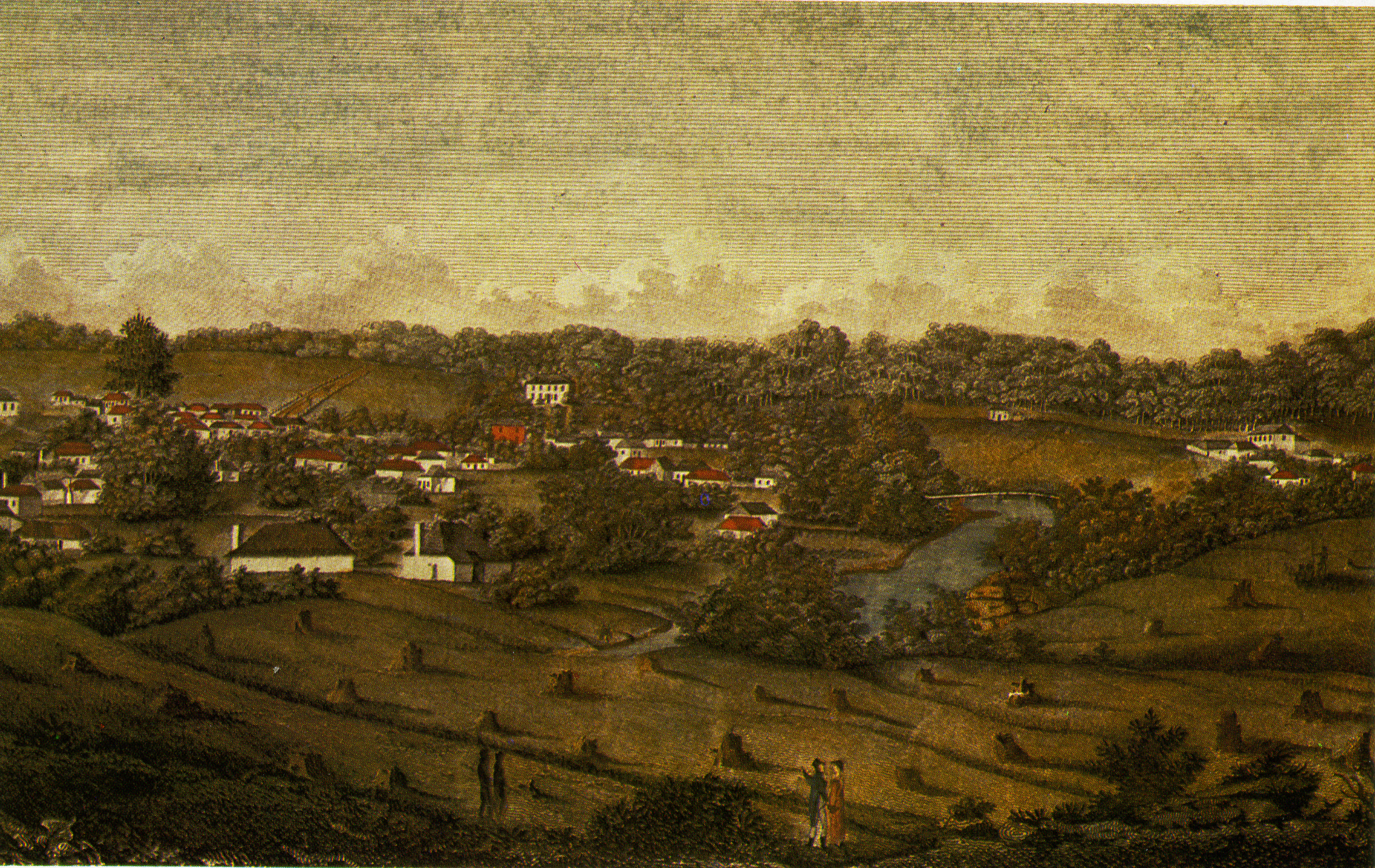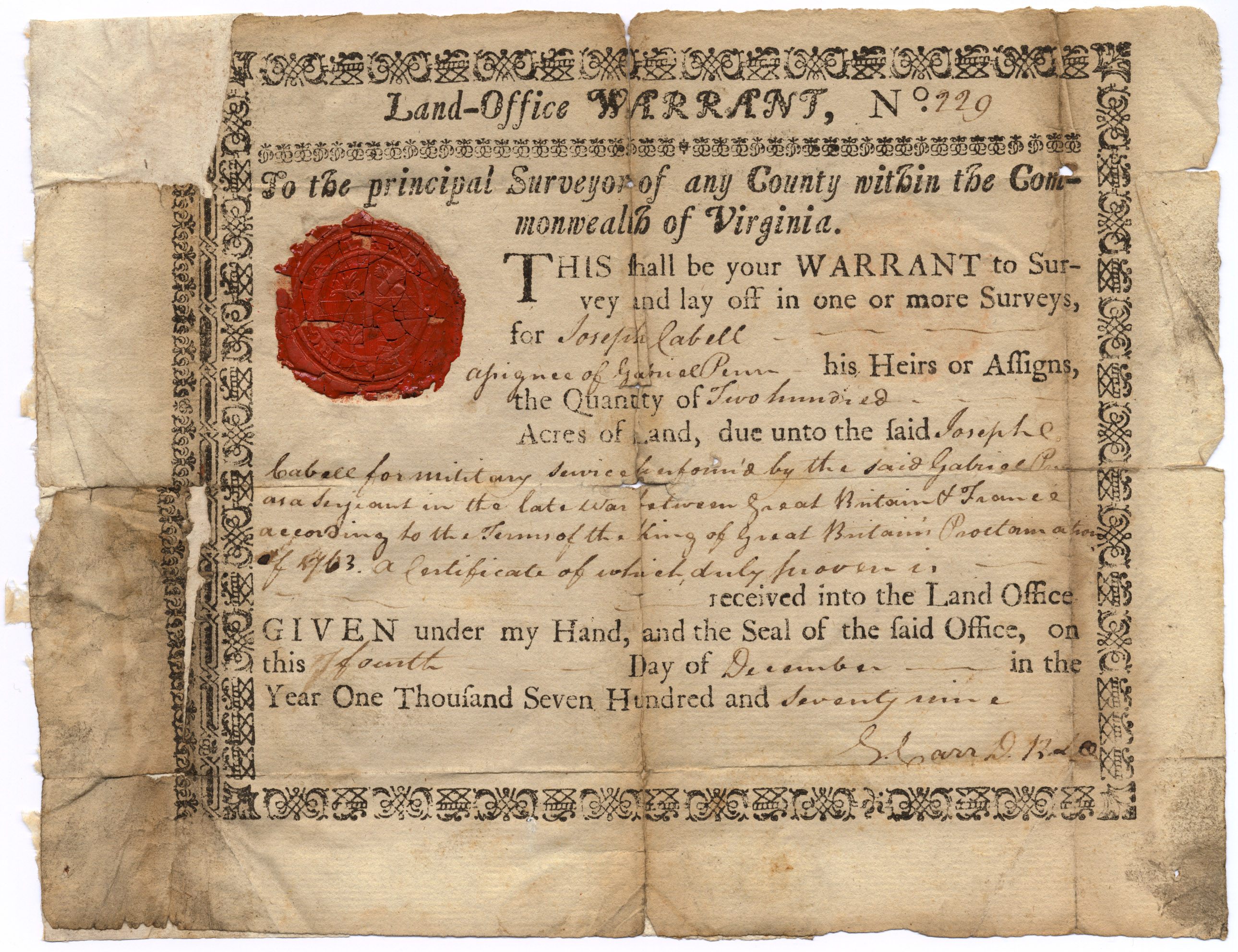|
Elizabeth Farm
Elizabeth Farm is an historic estate located at 70 Alice Street, Rosehill, a suburb of Sydney, New South Wales, Australia. Elizabeth Farm was the family home of wool pioneer, John and his wife Elizabeth Macarthur. The estate was commenced in 1793 on a slight hill overlooking the upper reaches of Parramatta River, west of Sydney Cove. The Burramattagal clan of the Dharug people are the traditional custodians of the area; their presence is recalled in the name Parramatta. The small, solid three-roomed brick cottage in the Australian Old Colonial style was transformed, by the late 1820s, into a smart country house, surrounded by 'pleasure grounds', orchards and almost of semi-cleared land. Enveloped within later extensions, the early cottage remains intact, making it Australia's oldest surviving European dwelling. The estate is managed by Sydney Living Museums as a museum that is open to the public for a modest fee. On 2 April 1999 the estate was listed on the New South Wales S ... [...More Info...] [...Related Items...] OR: [Wikipedia] [Google] [Baidu] |
Façade
A façade () (also written facade) is generally the front part or exterior of a building. It is a loan word from the French (), which means 'frontage' or ' face'. In architecture, the façade of a building is often the most important aspect from a design standpoint, as it sets the tone for the rest of the building. From the engineering perspective, the façade is also of great importance due to its impact on energy efficiency. For historical façades, many local zoning regulations or other laws greatly restrict or even forbid their alteration. Etymology The word is a loanword from the French , which in turn comes from the Italian , from meaning 'face', ultimately from post-classical Latin . The earliest usage recorded by the '' Oxford English Dictionary'' is 1656. Façades added to earlier buildings It was quite common in the Georgian period for existing houses in English towns to be given a fashionable new façade. For example, in the city of Bath, The Bunch of Grapes ... [...More Info...] [...Related Items...] OR: [Wikipedia] [Google] [Baidu] |
Sydney Cove
Sydney Cove ( Eora: ) is a bay on the southern shore of Sydney Harbour, one of several harbours in Port Jackson, on the coast of Sydney, New South Wales. Sydney Cove is a focal point for community celebrations, due to its central Sydney location between the Sydney Opera House and the Sydney Harbour Bridge. It is also one of the main congregation points for Sydney New Year's Eve. History The Eora name for Sydney Cove was recorded by several early settlers of the First Fleet variously spelt as Warrane, War-ran, Warrang and Wee-rong. The spot is of great significance, as the first meeting place between Eora people and Europeans. Before colonisation of the area, Eora men speared fish from the shoreline, and women line-fished from their ' (canoes). Sydney Cove was named after the British Home Secretary, the 1st Baron Sydney (who was later created 1st Viscount Sydney in 1789). It was the site chosen by Captain Arthur Phillip, RN between 21 and 23 January 1788 for the Brit ... [...More Info...] [...Related Items...] OR: [Wikipedia] [Google] [Baidu] |
London
London is the capital and List of urban areas in the United Kingdom, largest city of England and the United Kingdom, with a population of just under 9 million. It stands on the River Thames in south-east England at the head of a estuary down to the North Sea, and has been a major settlement for two millennia. The City of London, its ancient core and financial centre, was founded by the Roman Empire, Romans as ''Londinium'' and retains its medieval boundaries.See also: Independent city#National capitals, Independent city § National capitals The City of Westminster, to the west of the City of London, has for centuries hosted the national Government of the United Kingdom, government and Parliament of the United Kingdom, parliament. Since the 19th century, the name "London" has also referred to the metropolis around this core, historically split between the Counties of England, counties of Middlesex, Essex, Surrey, Kent, and Hertfordshire, which largely comprises Greater London ... [...More Info...] [...Related Items...] OR: [Wikipedia] [Google] [Baidu] |
Switzerland
; rm, citad federala, links=no). Swiss law does not designate a ''capital'' as such, but the federal parliament and government are installed in Bern, while other federal institutions, such as the federal courts, are in other cities (Bellinzona, Lausanne, Lucerne, Neuchâtel, St. Gallen a.o.). , coordinates = , largest_city = Zurich , official_languages = , englishmotto = "One for all, all for one" , religion_year = 2022 , religion_ref = , religion = , demonym = , german: link=no, Schweizer/Schweizerin, french: link=no, Suisse/Suissesse, it, svizzero/svizzera or , rm, Svizzer/Svizra , government_type = Federal assembly-independent directorial republic , leader_title1 = Federal Council , leader_name1 = , leader_title2 = , leader_name2 = Viktor Rossi , legislature = Federal Assembly , upper_house = Counci ... [...More Info...] [...Related Items...] OR: [Wikipedia] [Google] [Baidu] |
France
France (), officially the French Republic ( ), is a country primarily located in Western Europe. It also comprises of overseas regions and territories in the Americas and the Atlantic, Pacific and Indian Oceans. Its metropolitan area extends from the Rhine to the Atlantic Ocean and from the Mediterranean Sea to the English Channel and the North Sea; overseas territories include French Guiana in South America, Saint Pierre and Miquelon in the North Atlantic, the French West Indies, and many islands in Oceania and the Indian Ocean. Due to its several coastal territories, France has the largest exclusive economic zone in the world. France borders Belgium, Luxembourg, Germany, Switzerland, Monaco, Italy, Andorra, and Spain in continental Europe, as well as the Netherlands, Suriname, and Brazil in the Americas via its overseas territories in French Guiana and Saint Martin. Its eighteen integral regions (five of which are overseas) span a combined area of ... [...More Info...] [...Related Items...] OR: [Wikipedia] [Google] [Baidu] |
William Bligh
Vice-Admiral William Bligh (9 September 1754 – 7 December 1817) was an officer of the Royal Navy and a colonial administrator. The mutiny on the HMS ''Bounty'' occurred in 1789 when the ship was under his command; after being set adrift in ''Bounty''s launch by the mutineers, Bligh and his loyal men all reached Timor alive, after a journey of . Bligh's logbooks documenting the mutiny were inscribed on the UNESCO Australian Memory of the World register on 26 February 2021. Seventeen years after the ''Bounty'' mutiny, on 13 August 1806, he was appointed Governor of New South Wales in Australia, with orders to clean up the corrupt rum trade of the New South Wales Corps. His actions directed against the trade resulted in the so-called Rum Rebellion, during which Bligh was placed under arrest on 26 January 1808 by the New South Wales Corps and deposed from his command, an act which the British Foreign Office later declared to be illegal. He died in London on 7 December 1 ... [...More Info...] [...Related Items...] OR: [Wikipedia] [Google] [Baidu] |
Joseph Banks
Sir Joseph Banks, 1st Baronet, (19 June 1820) was an English Natural history, naturalist, botanist, and patron of the natural sciences. Banks made his name on the European and American voyages of scientific exploration, 1766 natural-history expedition to Newfoundland and Labrador. He took part in Captain James Cook's First voyage of James Cook, first great voyage (1768–1771), visiting Brazil, Tahiti, and after 6 months in New Zealand, Australia, returning to immediate fame. He held the position of president of the Royal Society for over 41 years. He advised King George III on the Royal Botanic Gardens, Kew, and by sending botanists around the world to Botanical expedition, collect plants, he made Kew the world's leading botanical garden. He is credited for bringing 30,000 plant specimens home with him; amongst them, he was the first European to document 1,400. Banks advocated Colony of New South Wales, British settlement in New South Wales and the colonisation of Australia, ... [...More Info...] [...Related Items...] OR: [Wikipedia] [Google] [Baidu] |
George Suttor
George Suttor (11 June 1774 – 5 May 1858) was an Anglo-Scottish farmer and pioneer settler of Australia, who is notable as the founder of a significant Australian family, and also as a supporter of Captain Bligh following the 1808 Rebellion at Sydney, New South Wales. Early life Suttor was born in Chelsea, London, England, the third son of a Scottish market gardener (and botanist on the estate of Charles Cadogan, 2nd Baron Cadogan) and his wife, ''née'' Thomas. Suttor, through contacts of his father, gained an interview with Sir Joseph Banks who sent Suttor to Australia with a collection of trees and plants including grapevines, apples, pears, and hops. These were put on board in October 1798, but delays took place and it was not until September 1799 that a proper start was made. A gale almost wrecked the ship, which was found to be unseaworthy, and a return was made to Spithead. In March 1800 another start was made on a corvette taken from the Spanish and renamed and ... [...More Info...] [...Related Items...] OR: [Wikipedia] [Google] [Baidu] |
Olive
The olive, botanical name ''Olea europaea'', meaning 'European olive' in Latin, is a species of small tree or shrub in the family Oleaceae, found traditionally in the Mediterranean Basin. When in shrub form, it is known as ''Olea europaea'' 'Montra', dwarf olive, or little olive. The species is cultivated in all the countries of the Mediterranean, as well as in Australia, New Zealand, North and South America and South Africa. ''Olea europaea'' is the type species for the genus '' Olea''. The olive's fruit, also called an "olive", is of major agricultural importance in the Mediterranean region as the source of olive oil; it is one of the core ingredients in Mediterranean cuisine. The tree and its fruit give their name to the plant family, which also includes species such as lilac, jasmine, forsythia, and the true ash tree. Thousands of cultivars of the olive tree are known. Olive cultivars may be used primarily for oil, eating, or both. Olives cultivated for consumption a ... [...More Info...] [...Related Items...] OR: [Wikipedia] [Google] [Baidu] |
Parramatta
Parramatta () is a suburb and major Central business district, commercial centre in Greater Western Sydney, located in the state of New South Wales, Australia. It is located approximately west of the Sydney central business district on the banks of the Parramatta River. Parramatta is the administrative seat of the Local government areas of New South Wales, local government area of the City of Parramatta and is often regarded as the main business district of Greater Western Sydney. Parramatta also has a long history as a second administrative centre in the Sydney metropolitan region, playing host to a number of state government departments as well as state and federal courts. It is often colloquially referred to as "Parra". Parramatta, founded as a British settlement in 1788, the same year as Sydney, is the oldest inland European settlement in Australia and is the economic centre of Greater Western Sydney. Since 2000, government agencies such as the New South Wales Police Force ... [...More Info...] [...Related Items...] OR: [Wikipedia] [Google] [Baidu] |
Land Grant
A land grant is a gift of real estate—land or its use privileges—made by a government or other authority as an incentive, means of enabling works, or as a reward for services to an individual, especially in return for military service. Grants of land are also awarded to individuals and companies as incentives to develop unused land in relatively unpopulated countries; the process of awarding land grants are not limited to the countries named below. The United States historically gave out numerous land grants as Homesteads to individuals desiring to prove a farm. The American Industrial Revolution was guided by many supportive acts of legislatures (for example, the Main Line of Public Works legislation of 1826) promoting commerce or transportation infrastructure development by private companies, such as the Cumberland Road turnpike, the Lehigh Canal, the Schuylkill Canal and the many railroads that tied the young United States together. Ancient Rome Roman soldiers were g ... [...More Info...] [...Related Items...] OR: [Wikipedia] [Google] [Baidu] |
Francis Grose (British Army Officer)
Lieutenant-General Francis Grose (1758 – 8 May 1814) was a British soldier who commanded the New South Wales Corps. As Lieutenant Governor of New South Wales he governed the colony from 1792 until 1794, in which he established military rule, abolished civil courts, and made generous land-grants to his officers. He failed to stamp out the practice of paying wages in alcoholic spirits, with consequent public drunkenness and corruption. Although he helped to improve living conditions to some degree, he was not viewed as a successful administrator. Early life Francis Grose was born in 1758 in England. He was the eldest son of Francis Grose (the well-known English antiquary) and Catherine Jordan. Grose received a commission as an ensign in 1775, in the 52nd Foot and was promoted to lieutenant later that year. Grose served during the American Revolutionary War, where he was twice wounded (at the assaults on Fort Montgomery and Monmouth Court House). Returning to England in 177 ... [...More Info...] [...Related Items...] OR: [Wikipedia] [Google] [Baidu] |

.jpg)






